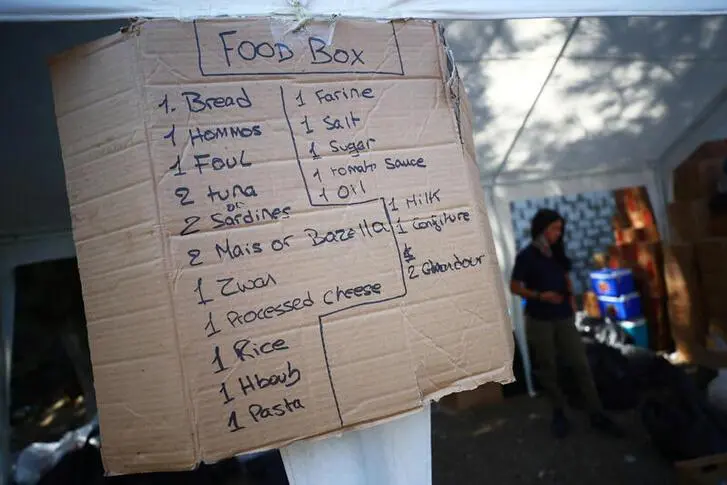PHOTO
BEIRUT: A UN human rights expert warned Friday that the international community needs to urgently ramp up its assistance and support to Lebanon to prevent people from going hungry as a result of the catastrophic Beirut Port explosion nearly a month ago.
The explosion destroyed the countrys main source of food and has further pushed Lebanon to the brink of a hunger crisis, Michael Fakhri, special rapporteur on the right to food, was quoted as saying in a statement.
Lebanons food system has always been fragile because it relies on imports for 85 percent of its food. The situation has become dire now because Beirut Port handled approximately 70 percent of the countrys total imports before the explosion, he said.
Lebanon, which is heavily dependent on imports, relies on container ships to bring in items ranging from refrigerated food cargoes to clothing and other consumer goods. Damage resulting from the Beirut Port explosion has been estimated at around $15 billion.
The explosion destroyed some 15,000 tons of wheat kernel and barley which had been stored in silos at the port. Lebanon does not have a national grain reserve and without support, the country could run out of flour by the middle of September, according to the UN.
A hunger crisis to this degree is always caused by systemic national and international political failure, and this is definitely the case in Lebanon, Fakhri said.
An increasing number of people are being forced to compromise on the quantity or quality of food they eat, or go for days without eating, Fakhri said.
He called on the international community to step up now and use multilateral institutions to help reconstruct Lebanons food and agriculture systems.
Fakhri also called on all UN institutions dealing with food and agriculture the World Food Program, Food and Agriculture Organization, International Fund for Agricultural Development and Committee on World Food Security to help all people in Lebanon.
Lebanons high dependence on food imports makes the countrys food security increasingly more vulnerable to price fluctuations, economic pressures and unpredictable global trade restrictions that can be imposed due to the pandemic.
According to a recent UN report, over half of the country is now struggling to put food on the table. Even the most basic of household staples items as simple as rice, salt and sugar have experienced an alarming 109 percent price hike since September, the report says.
Copyright 2020, The Daily Star. All rights reserved. Provided by SyndiGate Media Inc. (Syndigate.info).





















